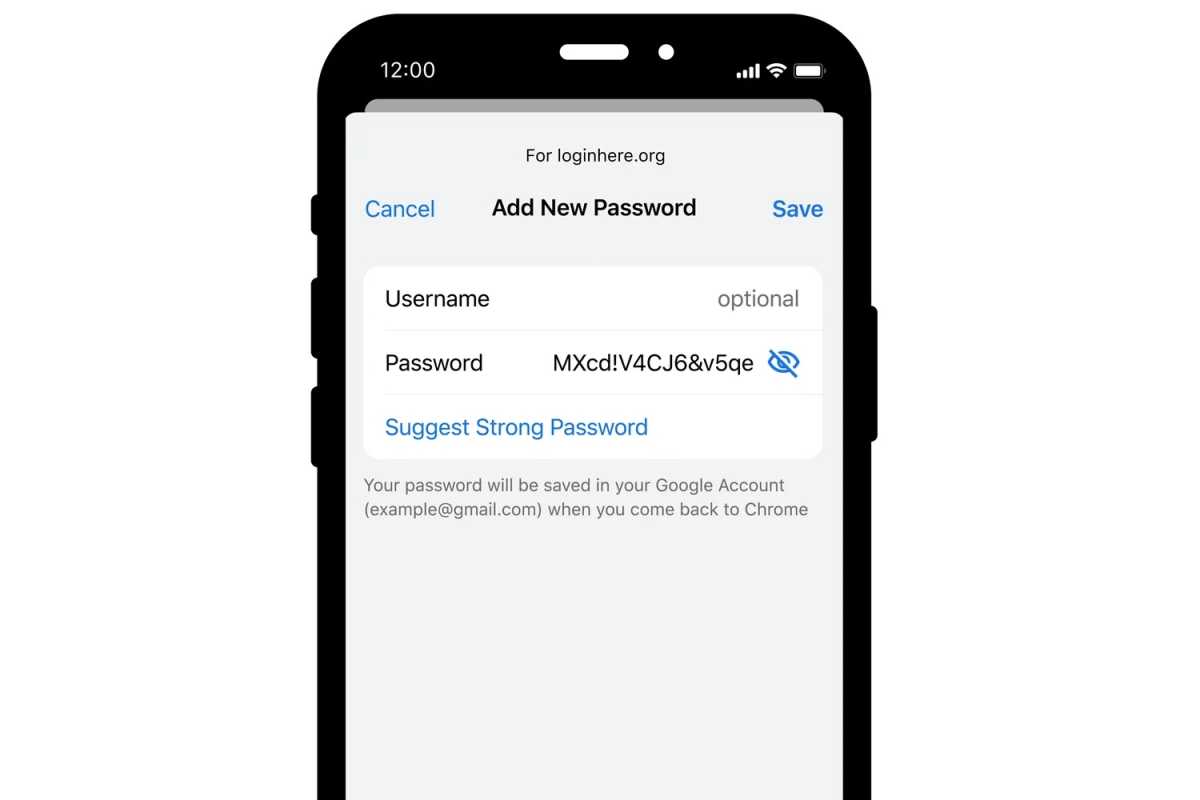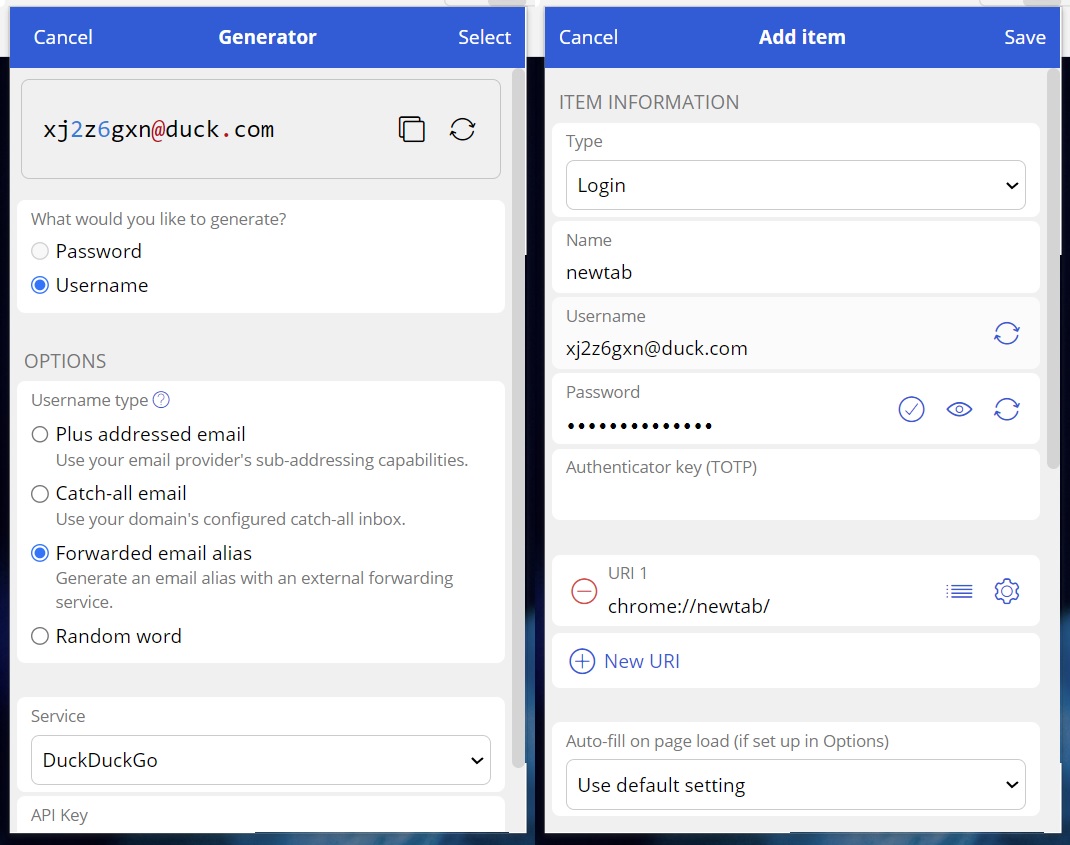
[ad_1]
In current years, it’s gotten so much simpler to have higher password hygiene with out utilizing a dedicated password manager.
Thanks to built-in password administration instruments on iOS and Android, and on the browser stage on Chrome and Microsoft Edge, you’ll be able to create safe passwords with minimal efforts. These instruments have gotten more and more subtle, such {that a} separate password supervisor won’t be crucial.
But earlier than you tie all of your logins with the likes of Google, Apple, and Microsoft, take a while to contemplate the trade-offs. In alternate for the comfort of their built-in options, you’ll lose each the liberty and options {that a} correct password supervisor offers.
Built-in choices are bettering
Relying solely in your internet browser for password administration was a laughable idea.
Sure, the auto-fill options in Chrome, Firefox, and different browsers made logging into web sites simpler, however they didn’t assist you to log into apps in your telephone. They additionally didn’t embody some options that have been desk stakes in devoted password managers, similar to the flexibility to generate safe passwords when signing up for brand spanking new providers.
As a consequence, they didn’t ship the primary good thing about utilizing a devoted password supervisor similar to Dashlane or Bitwarden, which is to keep you from using the same weak passwords everywhere.
But so much’s modified since then:

Strong password solutions: One means built-in password managers are catching as much as devoted ones.
These built-in password managers have additionally gotten higher on the safety entrance. They all have the flexibility to generate sturdy passwords in your behalf, they usually can provide you with a warning to any passwords which are weak, redundant, or stolen. Apple even added two-factor authentication code support to iCloud in 2021, so that you don’t want a separate app to assist lock down your accounts.
All of which provides as much as a compelling case for no matter password supervisor is constructed into your favourite internet browser. Compared to devoted password managers, the setup course of is minimal, they usually’ll seemingly by no means value you something, so I think that lot of individuals will use these default password instruments with out even occupied with it.
So what’s the issue?
The primary motive I don’t depend on any of those password managers is essentially about flexibility. I’ve a borderline obsession with not being completely tied any specific machine or computing platform, and these built-in password managers can finally be one other mechanism for lock-in.
Since I’m utilizing Bitwarden as my password manager, bringing my passwords to a brand new machine or internet browser solely requires putting in the Bitwarden app or browser extension, then logging in, and my passwords mechanically sync irrespective of the place I’m. With built-in password managers, switching might be extra of a problem:
- Microsoft, to its credit score, affords a Chrome extension for accessing your passwords outdoors of Edge, however it doesn’t provide add-ons for Firefox or MacOS Safari. If you need to use these browsers, you’ll have to import your password listing from Edge.
- Chrome has no method to sync your passwords in different browsers, so everytime you change, you’ll must import your Chrome password listing.
- With iCloud Passwords, you’ll be able to’t entry your passwords on Android or sync passwords in Windows browsers aside from Chrome and Edge. And until you have got a Mac, you’ll be able to’t export your passwords to a special service in any respect.
- Some different browsers, similar to Vivaldi, Brave, and Opera, don’t provide auto-fill options for cell apps. If you depend on their built-in password managers, you gained’t have a simple method to log into apps in your telephone.

Bitwarden has an array of e mail masking choices.
Jared Newman / Foundry
Lock-in isn’t the one motive to contemplate a devoted password supervisor. The main browsers nonetheless don’t provide group sharing choices in order that members of the family can simply log into shared providers. Some password managers may also auto-fill passwords in desktop apps—Chrome, Edge, and Firefox can’t do that—they usually have their very own standalone cell apps that make it straightforward to view your credentials from anyplace. Bitwarden even permits you to plug in masked email addresses from a variety of suppliers, whereas 1Password integrates with Privacy.com for limited-use credit cards.
But for me, the choice to seamlessly change between browsers or units is by far the largest issue. Being capable of strive new instruments—or abandon ones that not work effectively—is essential to me, and I by no means need one thing as mundane as passwords to get in the way in which. PCWorld’s information to the best password managers may also help you discover the most suitable choice to suit your particular wants.
Get extra sensible tech recommendation each week with Jared’s Advisorator newsletter, the place a model of this column first appeared.
[adinserter block=”4″]
[ad_2]
Source link